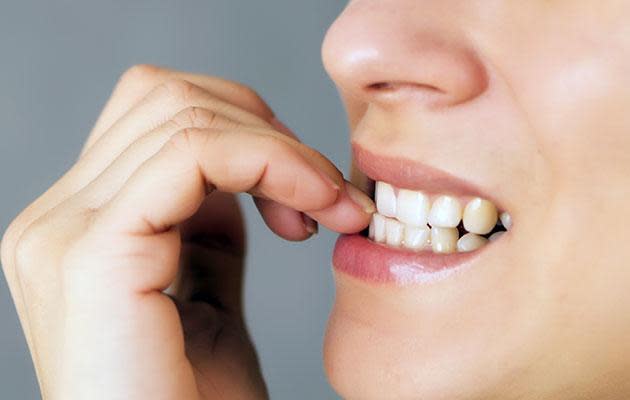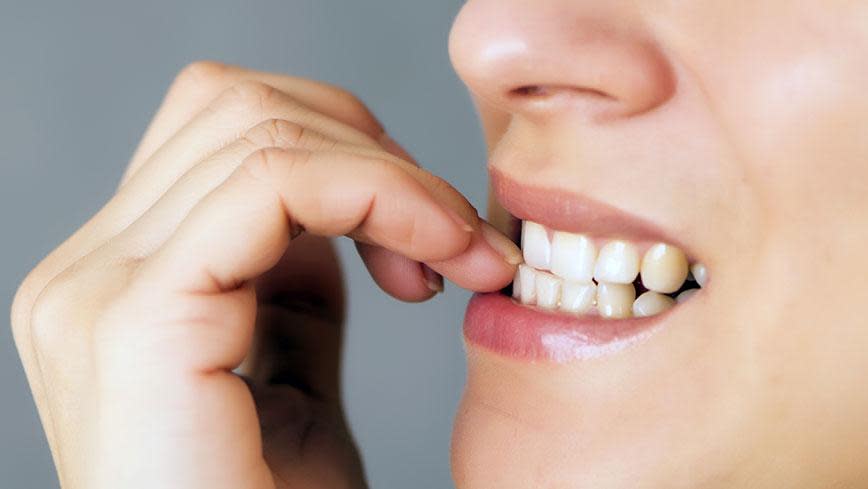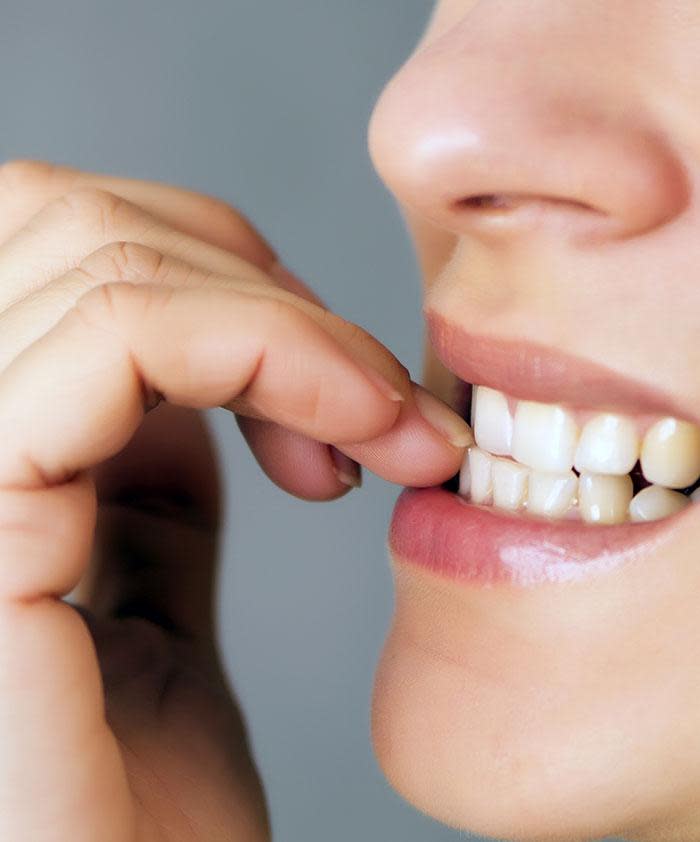How to Stop Biting Your Nails Once and for All
Biting your nails might seem like NBD. It’s just a mindless habit that ruins your mani, right? If only. If it becomes chronic (i.e. you’re doing it all the time), nail biting can pose serious skin problems like infections, inflammation, and even malformed fingernails (which have horizontal ridges, depressions, and bumps), says Chris G. Adigun, M.D., a board-certified dermatologist and a nail specialist in Chapel Hill, North Carolina. Eek.
RELATED: How To Choose A Red Lipstick
RELATED: How To Be A Better Kisser
Do it too much and you could also end up with scars and permanent damage, she says. The thing is, there are two kinds of nail biting. For some people, it’s just an occasional slip-up; for others, it can disrupt life and cause distress, making it a clinical problem, says Kieron O’Connor, Ph.D., director of the obsessive-compulsive disorder (OCD) spectrum study center at the University of Montreal.
Regardless, it’s important to quit nibbling—stat. These five expert-backed strategies are certain to help every kind of nail biter back off.
1. Buy a Nasty-Tasting Nail Polish
For mindless munchers, OTC products that have a foul taste can be enough to break the habit, says Adigun. After all, if you don’t even realize you’re doing it, this will certainly make you aware. Try Mavala Stop ($15, amazon.com). It goes on like clear polish and has a bitter (but harmless) taste.
2. Get a Real Mani
The American Academy of Dermatology suggests that sometimes, all you need is a pricey and pretty reminder to ditch the habit. It makes sense: If your nails are done up—and you just doled out some dough to have them done—you might be less likely to want to ruin the work.
3. Know Your Triggers and Have a Plan
If you’re a nervous nail biter, ID when and where your tension crops up, says O’Connor. For example, maybe you notice that when you’re on a tight deadline, you feel the need to do something with your hands—and then your nails turn to stubs. Knowing that and coming up with what O’Connor calls a “competing action”—like putting your hands on your knees instead of in your mouth when you feel anxious—can help you change your response to stress. Other relaxation strategies like deep breathing can help, too. Make your deadline without biting? Reward yourself, suggests O’Connor. (Ice cream, anyone?)
4. Change Your Expectations
“Nail biters tend to be perfectionists,” says O’Connor. But pushing yourself too hard can lead you to feel like you’re never doing enough (even if you are). “These type of situations trigger nail biting,” he notes. Sound familiar? Take stock of your expectations. Maybe you’re setting goals for yourself that are too unrealistic to ever meet, or maybe you’re not giving yourself enough credit. Then think: “What’s a challenging but attainable goal?” “How am I performing compared to other people in my position?” The aim here is to prevent the nail biting in the first place by addressing the thoughts and emotions that cause it, says O’Connor.
5. See a Counselor
Sometimes, you just can’t stop. If you have medical complications from biting—or if your habit is linked to psychological issues like anxiety disorders (or you think it could be)—a mental health professional can provide the support you need, says Adigun. So if you think your biting is obstructing day-to-day life, make an appointment. There are many professionals who specialize in conditions like OCD and anxiety who can help quell your worries—and hopefully help you cut the habit for good.

 Yahoo Lifestyle
Yahoo Lifestyle 


